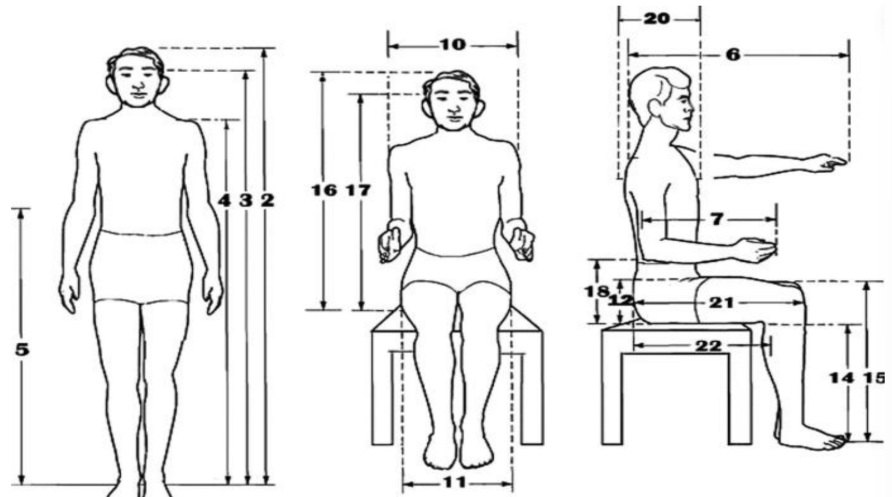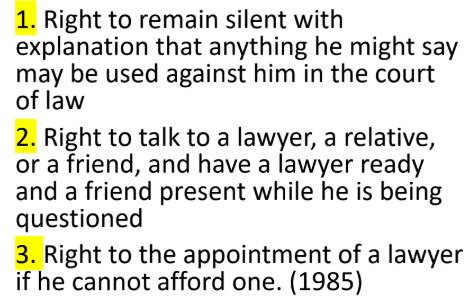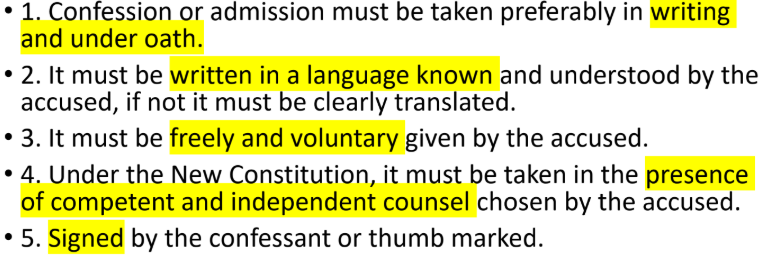cdi 101 - fundamentals of criminal investigation and intelligence
1/202
There's no tags or description
Looks like no tags are added yet.
Name | Mastery | Learn | Test | Matching | Spaced |
|---|
No study sessions yet.
203 Terms
criminal
in criminological sense, a person may be considered as a _____ from the time he or she committed the crime regardless whether or not it has been reported to the police for investigation
criminal
in criminal justice sense, a _____ may be defined as one who has undergone the process and went through all the pillars of the criminal justice system
criminal
in legal sense, a person may be considered a _____ only upon undergoing in the judicial process and upon determination by the court that he or she is guilty beyond reasonable doubt
investigation
literally means the act or process of careful inquiry or research; the systematic examination of some scientific detail or question whether by experiment or mathematical treatment
investigation
came from latin word investigare or vestigare or investigatus which means to trace or track; vestigium which means footprint and investigationem meaning searching for
came from old french word investigacion which means searching into
JONATHAN WILD (1720)
a buckle maker and a brothel operator; a master criminal who became london’s most effective criminal investigator; most famous thief catcher for pioneering the logic “employing a thief to catch a thief”
HENRY FIELDING (1749)
a magistrate in london who founded a group of non-uniformed thief catchers attached to bow street court whose function was to detect and watch criminals
JOHN FIELDING
the blind younger brother of HENRY FIELDING who took over control of bow street court (1753) - he called it bow street runner
bow street runner
first privately paid group to follow up investigation of crime
JOHN FIELDING
he initiated the practice of developing paid informants, printing wanted notices, employing criminal raids, and bearing firearms and handcuffs
EUGENE “FRANCOIS” VIDOCQ
a former convict who became a paris investigator; introduced the trade protection policy; forerunner of credit card system
SIR ROBERT PEEL
father of modern policing system; founded the london metropolitan police, also called as scotland yard bobbies
SIR ROBERT PEEL
presented the art and techniques of surveillance such as detectives concealing themselves while discreetly taking photograph and recording conversation
texas rangers
first law enforcement agency with statewide investigative authority; forerunner of the FBI (USA)
ALLAN PINKERTON
america’s famous private investigative;
founder of american criminal investigation system;
spearheaded the use of telegraph, railroad, and photography;
established the practice of handwriting examination in US courts;
credited for perfecting the techniques of undercover investigation
MRS. KATE WARNE
first woman detective hired by pinkerton agency
ALPHONSE BERTILLON
a french police clerk; founder of criminal identification (for providing the first systematic identification system); bertillonage system/anthropometry

the west case
WILL WEST and WILLIAM WEST
a case which stated that BERTILLON’s measurements for identification is not reliable therefore adopting fingerprint as better alternative
DR. ARTHUR CONAN DOYLE
british writer and physician; created the fictional detective “sherlock holmes” and writes stories about him which led to the public consciousness for forensic science
DR. HANS GROSS
australian criminal jurist; published the book “criminal investigation”; introduced the first comprehensive description of physical evidence in solving problem; FATHER OF CRIMINALISTICS/FATHER OF CRIMINAL INVESTIGATION
MAPP VS OHIO
the supreme court ruled the illegally obtained evidence is inadmissible in state criminal prosecutions

MIRANDA VS ARIZONA
the US supreme court established procedural guidelines for taking criminal confessions
PEOPLE VS GALIT
the right to a counsel may be waived but the waiver, to be valid, must be made with assistance of a counsel
criminal investigation
it is an art or science which deals with the identity, location of the offender and provides evidence of guilt through criminal proceedings
criminal investigation
it involves the systematic process of identifying, collecting, preserving, and evaluating information for purposes of bringing criminal offender to justice
criminal investigator
a public safety officer who is tasked to conduct the investigation of all criminal cases as provided for and embodied under the revised penal code/criminal laws and special laws which are criminal in nature
cardinal points
the primary job of the investigator is to discover whether or not an offense has been committed under the law. he must establish or answer the _____
inductive approach
follows a sequence from specific to general such that investigators will look first at the pieces of evidence before concluding as to what crime is committed
deductive approach
starts from general to specific such that investigators will first start looking at the body of the crime before proceeding with the individual evidence as to how the crime was committed
information, interview/interrogation, instrumentation
three I’s of investigation
information
it is the knowledge or data which an investigator acquired from other persons and records
regular sources
records, files from government and non-government agencies, news items

cultivated sources
information gathered upon initiative of the investigator from informants and informers

grapevine sources
these are information coming from the underworld characters

informer
the person who provides information to the police on a regular basis mainly for purposes of rewards or remuneration
informant
is any person who furnishes the police information relevant to a criminal case about the activities of the criminals or syndicates
informant
they provide information to the prober voluntarily without any consideration
interview
is a conversation with a purpose, motivated by a desire to obtain certain information from the person beings interviewed as to what was done, seen, felt, heard, tasted, smell, or known
interrogation
the questioning of a person believed to possess knowledge that in official interest to the investigator
anonymous informants
they do not wish to be identified

rival elimination informant
to eliminate competition

false informant
reveals information of no consequence or value

frightened informant
motivated by anxiety

self aggrandizing
hangs about the fringes of the criminals and delight about surprising the police about bits of information

mercenary informant
gives information for a price or they sell information

double crosser informant
to get more information from the police

woman informant
female associates of the criminals. they uses body, charm, and intelligence to obtain more information

legitimate informant
operators of legitimate business establishments

incidental informant
individuals with no intention of repeating his services/furnishing information on continuing basis

casual informant
individuals who by social or professional position, possesses or has access to information to the investigation unit, either in response to a specific request or on his own initiative

automatic informant
those by virtue of their official positions are expected or obligated to furnish information openly to the investigation unit in normal course of their duty

recruited informant
individuals that are selected, trained, and utilized as continues and covert sources of information concerning specific counter-intelligence targets

interview
is a simple questioning of a person believed to possess knowledge in relation to an event/crime
interrogation
is a skillful questioning of a person suspected of having committed an offense or a person who is reluctant to make full disclosure of information in his possession which is pertinent to the investigation; it is confrontational in nature
identity
the investigator should identify himself

rapport
to have a better interaction

opening statement
why is the subject is being contracted?

narration
the witness should be allowed to tell all he knows with little interruptions from the investigator

inquiry
after all information have been given, that is the time for the investigator to ask question to clarify him about the case under investigation

conclusions
after the interview, it is but proper to close the interview with outmost courtesy and thanking the subject for his cooperation


observation
a complete and accurate observation by an individual of his surroundings and encompasses the use of all major sense to register and recognized its operational or intel significance


description
actual reporting of one’s observation

elicitation
it is a system or plan whereby all information of intelligence value is obtained thru the process of direct inter-communication in which one or more parties are unaware of the specific purpose of the conversation
the three phases are determination of the mission, selection of the subject, and accomplishment of the mission
approach
setting people to start talking
probe
to keep people talking
flattery
praise them to keep them talking
teacher-pupil approach
subject is treated as an authority than solicit his view-point
kindred soul approach
subject is placed on pedestal
good samaritan approach
offer help and assistance
partial-disagreement
disagreement will make them talk
provocative approach
provoke them/conventional gambits
teaser/bait
tempting them about a particular subject
manhattan from missouri
unbelievable attitude/question everything
joe blow
approachable/I know the answer to everything
national pride
propensity to defend country/policies


confession
the direct admission of guilt arising from the commission of a crime
a statement of the suspect directly acknowledging his guilt
extra judicial confession
those made by the suspect during custodial investigation
judicial confession
those made by the accused in open court
admission
a self incriminatory statement by the subject falling short of an acknowledgement of guilt
the acknowledgment of facts without accepting guilt


witness
any person who has seen or knowledge regarding the commission of the crime
prosecution witness
any person who offer testimony in favor for the prosecution and used to add incriminatory evidence to the accused

defense witness
any person who is brought before trial to strengthen the alibi of the defense and to disprove charge of the prosecution

character witness
any person who offer a testimony in line with the character reputation of some other person which will then serve at some point as to whether or not the testimony of that person will be given credit or not

eyewitness
any person who has seen the actual commission of the crime either whole or only part of its commission

child witness
a young individual who offers testimony concerning a crime

dumb witness
witnesses who by reason of some mental faculty are unable to provide an accurate detail regarding the crime which is typically common among uneducated individual

honest witness
these are those witnesses who cooperate and avoid exaggeration or falsehood in providing testimonies concerning the crime

fearful witness
these are those persons who are afraid of being involved in the prosecution of the accused or simply shy to face the open court

egocentric
a witness who is prone to exaggeration of the things he had observed and may attempt to add facts which are not part of the real scenario

hostile witness
those witnesses who are uncooperative and do not wish to provide information necessary for the prosecution of the case

suspicious witness
are individual witnesses who are doubtful about the true intention of the investigators or the police as a whole

ordinary witness
these are those witness who may be allowed to testify regarding the following:
a. about the identity of the person whom he had knowledge
b. handwriting of the person of which he had familiarity
c. mental sanity of the person whom he had acquainted with

expert witness
those witnesses who by reason of their knowledge, skills, training, or experience may be allowed by the court to give their opinion. ex: questioned document examiner, forensic chemist etc.
verbal description/portrait parle
speaking likeness; depends on the ability of the witness to observe, describe, and compare

photographic files (rogues gallery)
successful if there is an existing photograph of the suspect on files

general photograph
variety of facial types showing different features of the face is presented to the witness by the investigator

artist sketch (composite criminal illustration)
the witness and prober develop a picture of the criminal with the help of skilled cartographer

physical line up
a means of selecting a suspect from a group of innocent persons usually composed of seven to ten persons. the purpose of line up is to eliminate the power of suggestion
